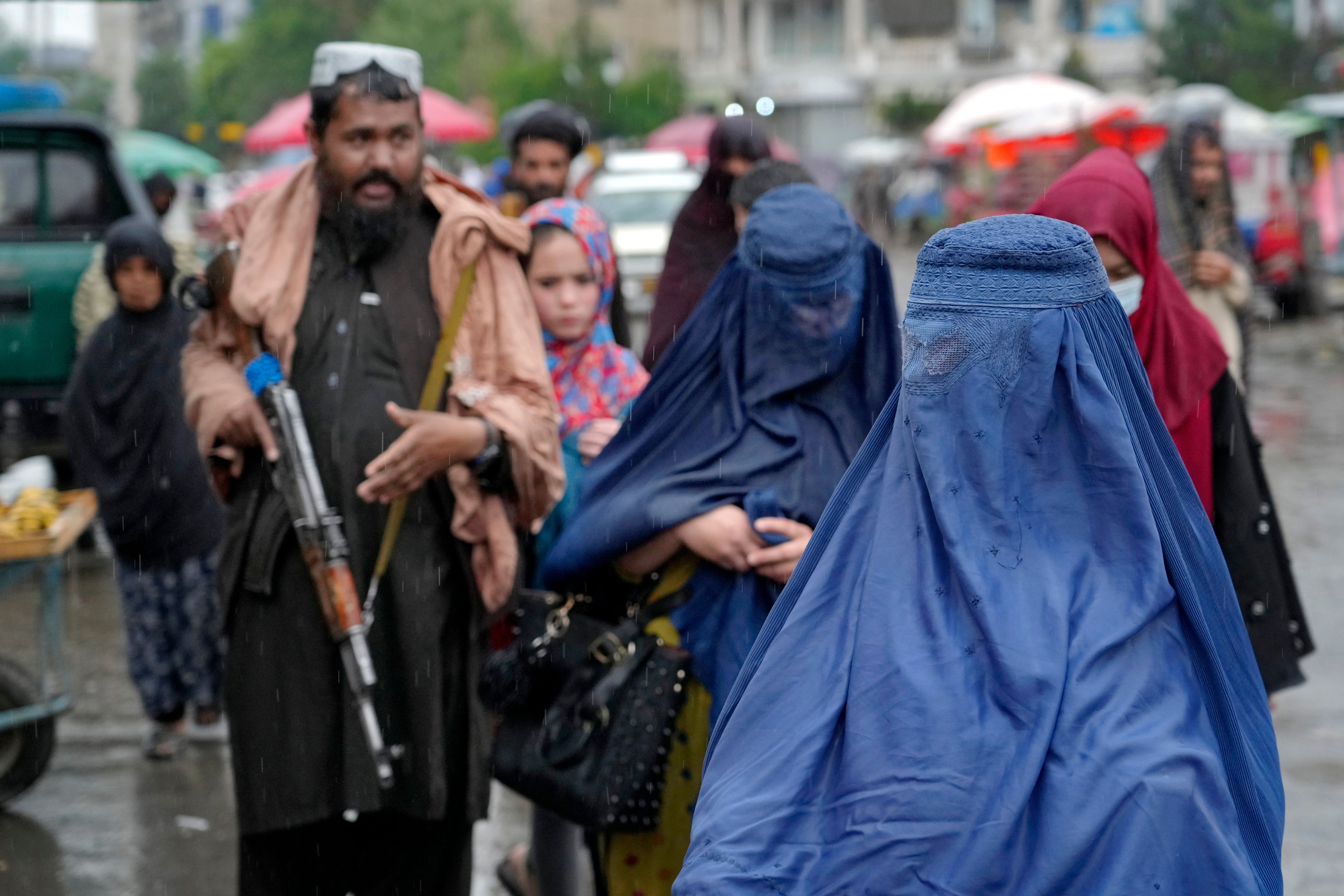Taliban orders all Afghan women to cover faces in public
The Taliban government has faced pushback from the west for implementing regressive rules

Your support helps us to tell the story
From reproductive rights to climate change to Big Tech, The Independent is on the ground when the story is developing. Whether it's investigating the financials of Elon Musk's pro-Trump PAC or producing our latest documentary, 'The A Word', which shines a light on the American women fighting for reproductive rights, we know how important it is to parse out the facts from the messaging.
At such a critical moment in US history, we need reporters on the ground. Your donation allows us to keep sending journalists to speak to both sides of the story.
The Independent is trusted by Americans across the entire political spectrum. And unlike many other quality news outlets, we choose not to lock Americans out of our reporting and analysis with paywalls. We believe quality journalism should be available to everyone, paid for by those who can afford it.
Your support makes all the difference.The Taliban has ordered all Afghan women to wear an all-covering burqa in public that veils their faces, in one of the harshest attacks on women's rights since wresting power last year.
The decree from the group's supreme leader Hibatullah Akhundzada on Saturday comes amid an aggressive effort by the Islamist government to clip women’s authority in public.
A Taliban spokesperson at a press conference in Kabul said that a woman’s father or closest male relative would be visited and eventually imprisoned or fired from government jobs if she was found to be in violation of the new rule.
According to the group, an ideal face covering was the all-encompassing blue burqa (chadori), which is “part of our tradition and is respectful”.
“Those women who are not too old or young must cover their face, except the eyes, as per Sharia directives, in order to avoid provocation when meeting men who are not mahram [adult close male relatives],” the diktat said, as quoted by AFP.
“We want our sisters to live with dignity and safety,” said Khalid Hanafi, acting minister for the group’s ministry of vice and virtue.
The decree added that if women have no important work outside they should remain at home. “Islamic principles and Islamic ideology are more important to us than anything else,” Mr Hanafi said.
Although many women in Afghanistan tend to wear the Islamic headscarf or hijab, they don’t necessarily cover their faces in public.
Earlier this month the Taliban stopped issuing driving licences to women in Kabul and other provinces, local media reported, citing verbal orders.
Notorious for their oppression of women during their first regime between 1996 and 2001, the Taliban had projected themselves to be more accepting of women’s free will after taking over the country in August 2021.
The Islamist group had also decided against reopening secondary schools for girls from the sixth standard, denying a generation of women access to education.
In March, the Taliban directed airlines not to let women board domestic or international flights without a male chaperone. The ministry of vice and virtue had also ordered men and women in Kabul to visit parks on separate days.
The wave of restrictions on women, including banning them from several government jobs, has led to widespread criticism in the west, which limits the country’s options for seeking international aid.
In March, the US cancelled planned meetings on easing the country’s financial crisis over the rampant decrees.
Join our commenting forum
Join thought-provoking conversations, follow other Independent readers and see their replies
Comments